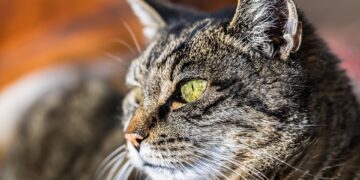The Purfect Companion: Discovering the Joys of Small Hypoallergenic Cats
For many people, the idea of having a furry feline friend is a dream come true. However, for those who suffer from allergies, this dream can quickly turn into a nightmare. But fear not, there is hope for allergy sufferers who still want to experience the joy of having a cat in their lives – small hypoallergenic cats!
What are Small Hypoallergenic Cats?
Small hypoallergenic cats are breeds that produce fewer allergens than other cats, making them a more suitable option for people with allergies. These cats are often characterized by their shorter fur, which produces less dander – the main culprit behind allergic reactions in cat lovers.
Common Small Hypoallergenic Cat Breeds
Some of the most popular small hypoallergenic cat breeds include:
- Russian Blue: Known for their short, dense coat and striking blue-gray color, Russian Blues are a favorite among allergy sufferers.
- Sphynx: The Sphynx is a hairless breed that produces minimal dander, making them an excellent choice for those with allergies.
- Balinese: With their long, silky coat, Balinese cats may not seem like an obvious choice for allergy sufferers. However, their low dander levels make them a suitable option for many people.
The Benefits of Owning a Small Hypoallergenic Cat
There are many benefits to owning a small hypoallergenic cat, including:
- Allergy Relief: Small hypoallergenic cats produce fewer allergens, making them a more comfortable option for allergy sufferers.
- Low Maintenance: Many small hypoallergenic cat breeds have shorter fur, which requires less grooming and maintenance compared to long-haired breeds.
- Great Companionship: Despite their size, small hypoallergenic cats are just as loving and affectionate as their larger counterparts. They make wonderful companions for cat lovers of all ages.
Tips for Caring for Small Hypoallergenic Cats
When caring for a small hypoallergenic cat, it’s important to keep a few things in mind:
- Regular Grooming: While small hypoallergenic cats produce less dander, regular grooming is still essential to keep their coat healthy and reduce allergens.
- Clean Environment: Keeping your home clean and free of dust and allergens can help minimize allergic reactions in both you and your cat.
- Proper Diet: A balanced diet is crucial for the health and well-being of your small hypoallergenic cat. Consult with your veterinarian to determine the best food options for your feline friend.
Common Questions About Small Hypoallergenic Cats
Are Small Hypoallergenic Cats Completely Allergy-Free?
While small hypoallergenic cats produce fewer allergens than other breeds, they are not completely allergy-free. Allergy sufferers may still experience mild reactions when exposed to these cats, although the symptoms are typically less severe.
Can Small Hypoallergenic Cats Be Around Other Pets?
Small hypoallergenic cats can typically coexist peacefully with other pets, including dogs and non-hypoallergenic cats. However, it’s essential to monitor their interactions and ensure that all pets are getting along harmoniously.
Do Small Hypoallergenic Cats Require Special Care?
While small hypoallergenic cats do not require any special care compared to other breeds, it’s essential to provide them with regular grooming and a clean environment to minimize allergens and keep them healthy and happy.
Conclusion
Small hypoallergenic cats are a fantastic option for allergy sufferers who still want to experience the joys of owning a cat. With their lower allergen levels and affectionate nature, these feline companions can bring happiness and companionship into the lives of cat lovers everywhere. By following proper care and maintenance guidelines, small hypoallergenic cats can thrive in their new homes and provide years of love and joy to their owners.
So if you’re looking for the purrfect companion but suffer from allergies, consider welcoming a small hypoallergenic cat into your home. You won’t regret it!














































